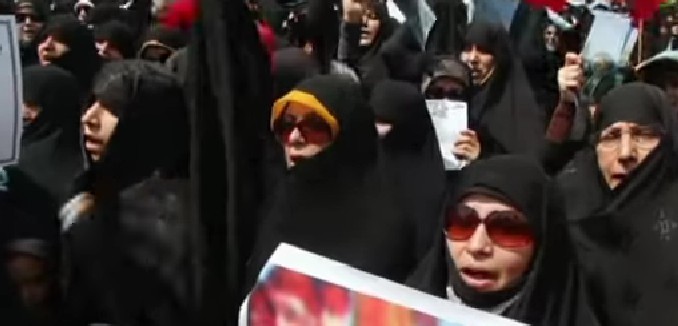Iran’s election to the top post in UN Women raises questions if Iran’s candidacy was enabled by the West’s concern not to upset the ongoing nuclear negotiations with Iran, the watchdog group, UN Watch charged Monday.
Hillel Neuer the executive director of UN Watch said:
“By elevating Iran to a global leadership post on women’s equality, the UN is legitimizing a regime that systematically treats women as second-class citizens.”
“The UN’s election of Iran by an overwhelming two-thirds majority is a moral outrage that threatens to undermine the UN Secretary-General’s own report on Iran’s pervasive discrimination against women,” said Neuer. Iran won 36 out of a possible 54 votes from the UN Economic and Social Council.
“Iran is considered one of the worst countries in the world on women’s rights, ranking 137th out of 142 countries in the latest Global Gender Gap Index of the World Economic Forum.”
Neuer pointed out that in 2010 the United States and European Union both backed an alternative candidate, which, in the end blocked Iran’s election to the organization, and suggests that “possibly in deference to the Iran nuclear talks, the West failed to back any alternative candidates.”
Iran’s ascension to the top position in UN Women comes in the wake of the report of proposed laws that would further limit the role of women in Iranian society. A year ago a report issued by the United Nations criticized the continued poor treatment of women in Iran under President Hassan Rouhani “despite pledges made by the president during his campaign and after his swearing in.” Canadian human rights activist Irwin Cotler observed too last September that women still suffered from inequality under Rouhani.
In Should the U.S. Take Iran’s Human Rights Problem More Seriously?, which was published in the April 2015 issue of The Tower Magazine, Ben Cohen spoke to Ahmed Shaheed, the UN-appointed Special Rapporteur on the situation of human rights in the Islamic Republic of Iran about Shaheed’s report documenting human rights abuses in Iran, including the status of women.
When I spoke to Shaheed shortly after the release of his latest report, he cautiously expressed hope that there were figures around Rouhani who might be open to a more substantive engagement on human rights. He also speculated that a lifting of sanctions in the context of a nuclear deal might also lead to greater international engagement with Iran, “and therefore exposure and pressure on Iran to improve its human rights record.” Shaheed told me, however, that “overall the country is getting worse on human rights practices, certainly since I’ve been observing it.”
In Shaheed’s view, the right to life is the most pressing of the myriad human rights concerns currently in play in Iran. “At least 753 individuals were reportedly executed in 2014 (the highest total recorded in the past 12 years),” his report revealed. “This includes the execution of 25 women and 53 public executions.”
I asked Shaheed what requests should be put to the Iranian regime in the light of that record. “I would say that a moratorium on the death penalty is the most urgent step they need to consider,” he replied. “I say that given the very high number of executions in the country, plus the fact that this has now been widened to include juvenile and political crimes, and corruption as well.”
Iran’s systematic discrimination against women is another pillar of its theocratic regime. “Sitting here at the UN for the last eleven years, I hardly hear anyone talk in any meaningful way about the rights of women in Iran,” Neuer told me.
[Photo: euronews (in English) / YouTube ]




